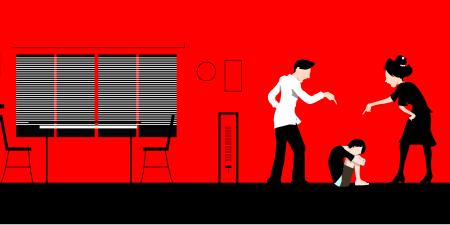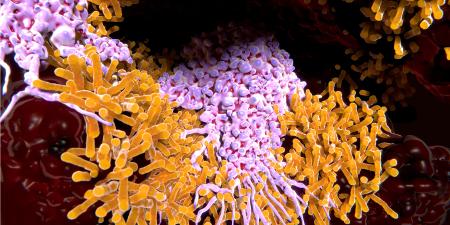The tightly-packed SUV roared down Interstate 35 through the bright Oklahoma sun. The warmth and promise of the day masked the dilemma left several miles north in Wichita. Dr. Green, a young family physician sitting behind the wheel, glanced over at his wife, who was rearranging her maternity blouse under the seat belt in a futile attempt to get comfortable, and then looked in the rear-view mirror at his son enthralled with a cartoon playing on the back-seat DVD console. Matthew still felt pangs of guilt about his decision from last night, but watching over his family eased him. He felt contentment and self-assurance about his choice.
In order to realize his personal responsibilities as both a husband and a father, Dr. Green regretfully had to turn aside his professional obligations leaving his patients without their physician and a pandemic looming on the horizon. A killer flu was en route to Kansas—a nasty character that, while possibly treatable, would require those who fight it to be quarantined and put directly in its path. It had already killed thousands in other states, mainly the elderly and children: the danger was well established and was heading to his town. Dr. Green had been asked to champion this cause, to fight this impending disease, by his partner and mentor Dr. Harris. Yesterday, Matthew faced the decision whether to quarantine himself in the hospital with his patients or to carry his family well outside the path of this terrible infection. "Every doc in the city has some reason to leave," he recalled Dr. Harris saying. "And we can't all go, so let's work this out."
Treating those the flu attacked would mean a separation from his family and the possibility of succumbing to the disease's wrath himself, although prophylaxis should certainly reduce that risk. Dr. Green had a young family and a new career. Both of those could be destroyed by his choice to take on this pandemic. If he were to become ill from this flu, does fighting this one specific battle justify the potential loss of years of helping others? Isn't the first priority of any parent to care for his family? Are his pregnant wife and young son vulnerable to such a disease? What would happen to his wife, his son, and their child on the way if something happened to him? Who would treat the long list of patients he can help in the future? Then again, without appropriate medical treatment, what would become of his current patients suffering from this horrible flu? These are some of the questions Dr. Green wrestled when he and Dr. Harris sat down in their clinic yesterday to devise a plan of action.
"I'll tell you Matt," his mentor instructed with a calm and guiding voice. "It's difficult. Those are all valid questions you raise, but ethics and theory can be funny things. You can pick and choose different arguments or ask different questions to justify most anything you want to do. But you're simply justifying what you want to do—taking the angle that helps you feel better about yourself and your decision. I know you care for your patients, and I know you love your family. It's hard. I was planning a camping trip to Yellowstone with my wife and grandsons, but this flu came up. And being an old man, I know getting in the middle of this thing isn't the best for my health either. But my patients, those in this community I've treated and watched grow for years, need me. They need you too. Sometimes doing what's right isn't the same thing as doing what's right for you."
Both physicians were clearly burdened as the governor appeared on the six o'clock local news. She reported the first cases appearing in a local hospital. The governor had decided not to enact any mandate requiring physicians to work; she simply asked each individual (doctors, nurses, pharmacists, and staff) to help those they serve. The governor expressed her faith in the health care professionals of the state. She believed that professional responsibility and compassion for helping others would not need an act of government to occur.
Dr. Green sighed deeply as he switched off the TV, visibly distraught by her comments. While the governor's request for him, and others, was appropriate, she was not the only one making demands. Dr. Green's cell phone had been flooded with messages from his wife and from his mother urging him to hurry home and pack. The governor's appeal was noted, but she was not the most influential woman in Dr. Green's life.
"It's easy to make decisions and be selfless when they only affect you, but once you're married and have a family, decisions aren't yours alone to make anymore. My wife wants me to leave," Matthew reflected. "What do I tell her? That my patients are more important than she is? More important than my family?"
"This is such a tough situation. I didn't realize how much pressure you had at home," Dr. Harris empathized. "What if it was your wife or your son with this flu? Would you want their doctor to leave town? Everyone in society has a role to play even when it's inconvenient. That's what keeps us running as a people. And the role you chose was to help those that are ill. You're a doctor Matthew, and your patients need you."
"I just don't know .. It's so hard. My patients or my wife?"
Dr. Harris smiled at the young man. "Medicine certainly is challenging, but that is part of what makes it is such a privilege to practice. I'll see you tomorrow Matt." Dr. Green sat in the office, looking at a pile of charts from patients hurting and hoping he can help them, from patients that Dr. Green knew believed and trusted in him. He wished he had his mentor's confidence that he would show up the next day, but he knew other priorities waited for him at home. "Balancing personal and professional responsibilities," he thought, "is far more challenging than any board exam." Still conflicted, Matthew prayed, locked up the office, and headed home.
Matthew's left arm started to feel a slight sun burn from resting against the window as several hours passed in the trip. Wichita was now far behind him so Dr. Green blocked from his mind the thought of leaving patients to suffer. Texas was just beyond the horizon, and his family would be safe at his parent's farm. He understood what his future could offer his fellow man and more importantly what his future meant to his family. He toyed with the idea of asking his wife to take their son on to his parents' house alone while he stayed behind at the clinic, but she did not want the family separated. She did not want him to risk catching the flu. After all, he concluded, the lack of one man prioritizing professional duty over personal responsibility would not disrupt society as we know it. While the impact of a lifetime of healing is significant, an absence from a few days of work would not have much consequence.
Dr. Green, his wife, and son drove up the gravel track leading to his parents' farm house. Finally, they arrived. His mother flung open the screen door and waved a big hello. "Look at that handsome boy. You've gotten so big," she teased with her grandson. "And you, you've gotten skinny. All that stress at work. Not eating probably," she continued while secretly thinking what a poor cook her son married. She knew her daughter-in-law was hopeless in the kitchen, but, of course, she could never say that. "Honey, I was going to make an orange mandarin cake, you're favorite, but I'm out of flour. Before you get settled, run to the store and pick some up for me."
"Mama, I don't know where the new store is since they moved, and I'm kind of tired."
"Nonsense. I'll ride with you and show you where the new store is," his cheerful mother replied. "Dear, you wouldn't mind keeping an eye on the stove for me? I have a few things already cooking. Come on my gorgeous boy; take a ride with your daddy and grandma."
Dr. Green rolled down his window and noticed heavy black smoke floating over the trees in the direction of his mother's house. As he turned down the gravel drive, the flashing lights of the big red fire truck came into view, and panic set into his mind.
There was his mother's house, thundering in flames. The fire seemed to engulf the whole structure, raging wildly; his wife surely got out. A deep sickening pulled at his stomach as he slammed on the brakes and ran towards the firemen.
"Where's my wife?" he panted, looking frantically around the yard for her.
"Oh, um, sir, we think there may be a woman inside, but we're not absolutely sure. That's why we're trying to get the fire put down a bit" replied a fireman sheepishly, uncomfortable at the confrontation he knew was about to occur.
"Well, why hasn't someone gone in to pull her out?!" Dr. Green barked in disbelief, his adrenaline kicking.
"The fire's dangerous right now sir, and while going in could save the lady, there's a chance one of us wouldn't make it back out. We have a responsibility for our own safety too."
"But you're a fireman it's your job!"
"This is a small town sir. We only have two firemen; if something happened to one of us, who would watch out for the rest of the town? I honestly wish I could help, but you can't expect us to risk our lives. That's not fair to us. We have personal resp.."
"I can't believe this," Dr. Green interrupted as he stomped about the two men. "Can't expect a firemen to save lives? You're only firemen when it's convenient for you, huh?"
"I mean, I'm really sorry sir," the other fireman replied, "but I have a wife and little girl at home. I just can't risk it. We'll get the fire put down as much as possible really soon, and get your wife. Let's just hold on a minute and hope for the best," he continued as the flames seemed to grow hotter and more intense.
"I just can't wait for that," Dr. Green said as he sprinted up toward the house shielding his face from the heat.
"Sir! Wait! Sir!" screamed the firemen trying to stop him from running into the burning house.
Dr. Green could only think of his pregnant wife and the help she needed. Help that these firemen refused to deliver just to save their own skins. Help they were paid to do. Help they swore to do! He glanced back over his shoulder through the smoke as he heard them yell and watched the two men step back to a safer distance away from the expanding danger of the fire. As the doctor stepped into the flames, he couldn't understand how any professional could turn his back on someone in need, someone whose life was threatened.



